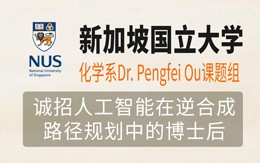Environmental Chemistry Letters ( IF 15.0 ) Pub Date : 2023-01-25 , DOI: 10.1007/s10311-023-01564-8
Wajid Ali , Hazrat Ali , Sayed Gillani , Philippe Zinck , Sami Souissi
|
|
Global pollution by plastics derived from petroleum has fostered the development of carbon–neutral, biodegradable bioplastics synthesized from renewable resources such as modern biomass, yet knowledge on the impact of bioplastics on ecosystems is limited. Here we review the polylactic acid plastic with focus on synthesis, biodegradability tuning, environmental conversion to microplastics, and impact on microbes, algae, phytoplankton, zooplankton, annelids, mollusk and fish. Polylactic acid is a low weight semi-crystalline bioplastic used in agriculture, medicine, packaging and textile. Polylactic acid is one of the most widely used biopolymers, accounting for 33% of all bioplastics produced in 2021. Although biodegradable in vivo, polylactic acid is not completely degradable under natural environmental conditions, notably under aquatic conditions. Polylactic acid disintegrates into microplastics faster than petroleum-based plastics and may pose severe threats to the exposed biota.
中文翻译:

聚乳酸合成、生物降解性、微塑料转化和毒性:综述
来自石油的塑料造成的全球污染促进了由现代生物质等可再生资源合成的碳中性、可生物降解的生物塑料的发展,但关于生物塑料对生态系统影响的知识有限。在这里,我们回顾了聚乳酸塑料,重点关注合成、生物降解性调整、环境转化为微塑料,以及对微生物、藻类、浮游植物、浮游动物、环节动物、软体动物和鱼类的影响。聚乳酸是一种用于农业、医药、包装和纺织品的低重量半结晶生物塑料。聚乳酸是使用最广泛的生物聚合物之一,占 2021 年生产的所有生物塑料的 33%。虽然在体内可生物降解,聚乳酸在自然环境条件下不能完全降解,尤其是在水生条件下。聚乳酸分解成微塑料的速度比石油基塑料快,可能对暴露的生物群构成严重威胁。

































 京公网安备 11010802027423号
京公网安备 11010802027423号